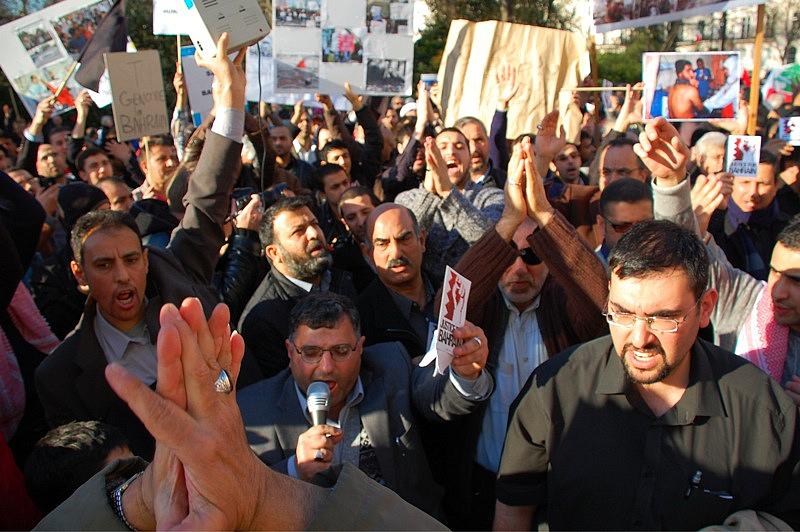Doctors Behaving Beautifully: Bahrain docs, nurses risked their lives to treat protesters

These 47 health care workers treated men and women who had risen up against Bahrain's monarchy only to be beaten and maimed by government forces.
Now those 47 are on trial, accused of being part of the attempt to oust the monarchy that has ruled the Gulf country for two centuries. Barbara Surk at The Associated Press wrote:
The prosecution of 47 health professionals is a sign that Bahrain's Sunni rulers will not end their relentless pursuit of the Shiite-led opposition despite officially lifting emergency rule last week.
The prosecution is taking place behind closed doors. The government is vetting which journalists can view the proceedings and is restricting access to the family members of the accused. These moves are exactly the types of violations of basic human rights that the country's Shiite majority has been protesting.
This helps explain why there has been zero information coming out of Bahrain about these medical heroes since early June.
For the most part, the group "treated injured protesters in the state-run Salmaniya Medical Complex in the capital, Manama," Surk wrote.
During the unrest, medical staff in Bahrain repeatedly said they were under professional duty to treat all and strongly rejected claims by authorities that helping anti-government protesters was akin to supporting their cause.
These doctors and nurses were responding to a crisis in the best medical tradition. Just as journalists don't take sides during a conflict and attempt to report as accurately as possible what is happening, doctors and nurses try to treat the wounded without regard to their allegiances. An estimated 31 people have died as a result of the protests, including four opposition supporters who died while being detained.
Amnesty International has asked for an investigation into claims that the health workers were tortured while in custody.
Relatives of the accused have alleged to Amnesty International that security officials at Bahrain's Criminal Investigations Directorate forced detainees to stand for long periods, deprived them of sleep, beat them with rubber hoses and wooden boards containing nails, and made them sign papers while blindfolded.
Civil conflicts are complicated. Never is everyone fighting – on either side – for one single cause. As we saw with the uprising in Egypt and the subsequent violence done by some of the protesters there, these can be confusing events that are difficult to adequately capture with a news story and a few photographs. This is why journalists and medical workers cannot afford to be blinded by ideology.
These 47 health workers put their lives and their careers at risk because they put ideology aside. Health writers should keep close eyes on this case and do what they can to keep these 47 heroes from suffering even more.
Photo credit: Jim Rudoni via Flickr

